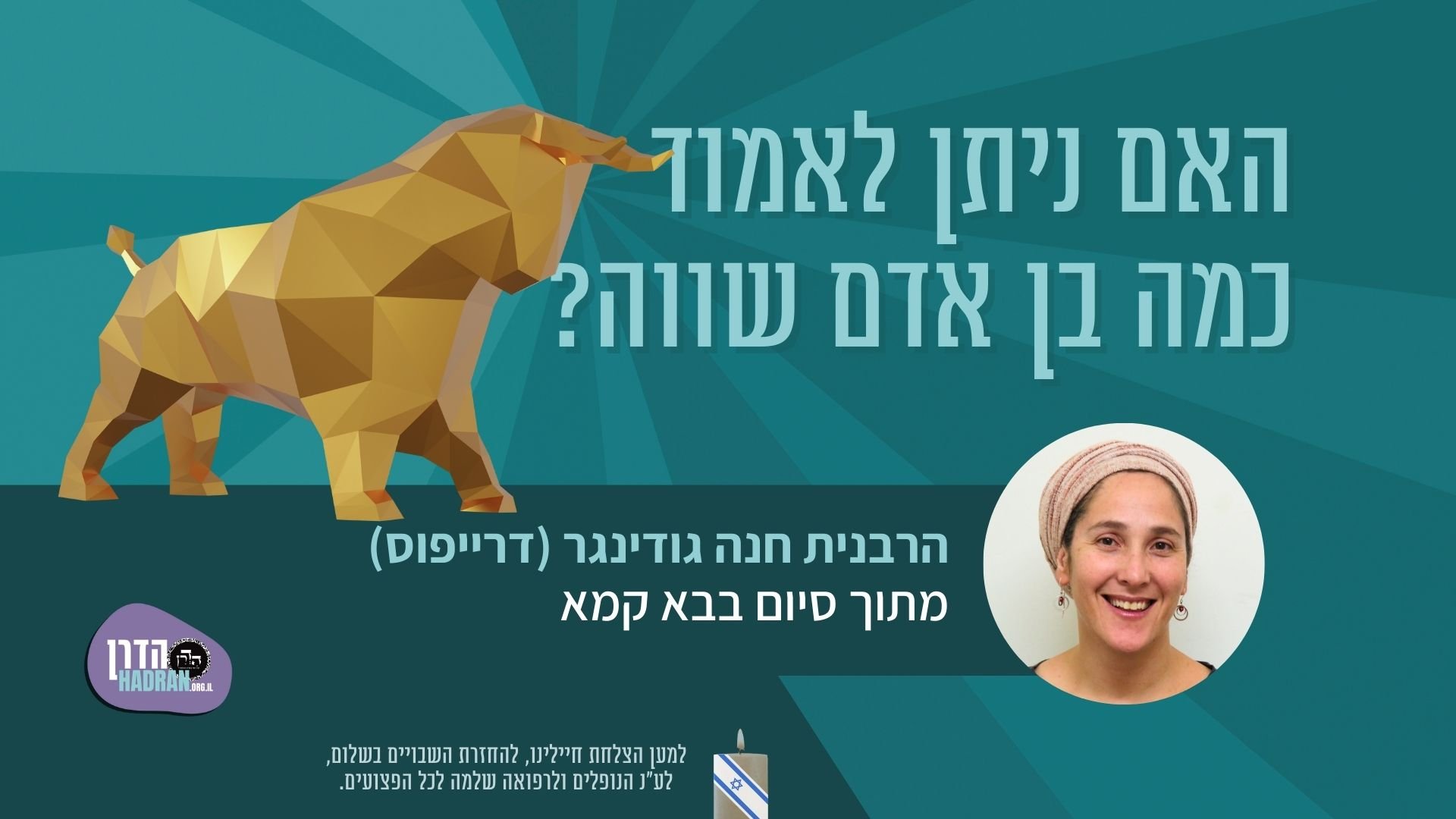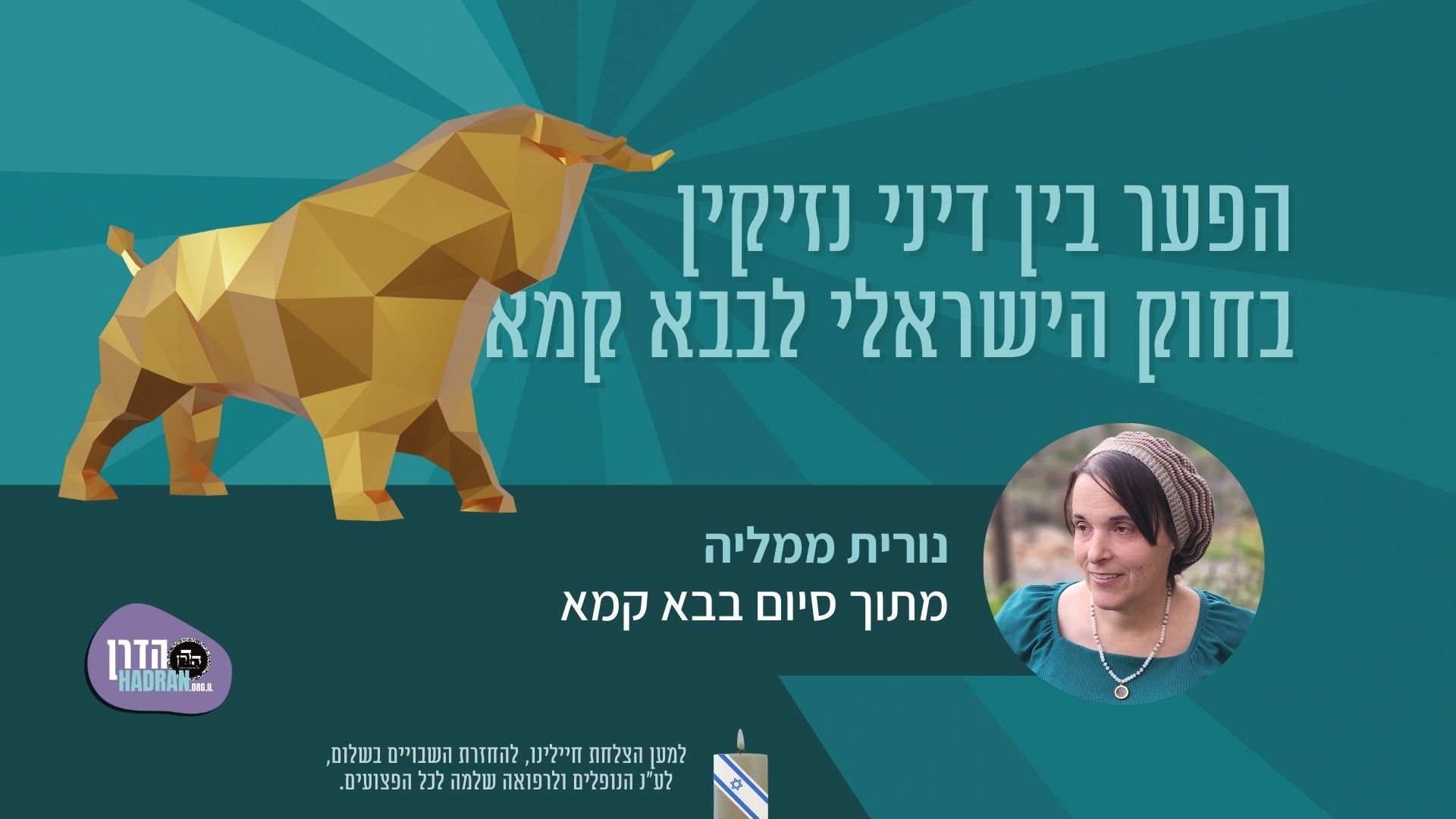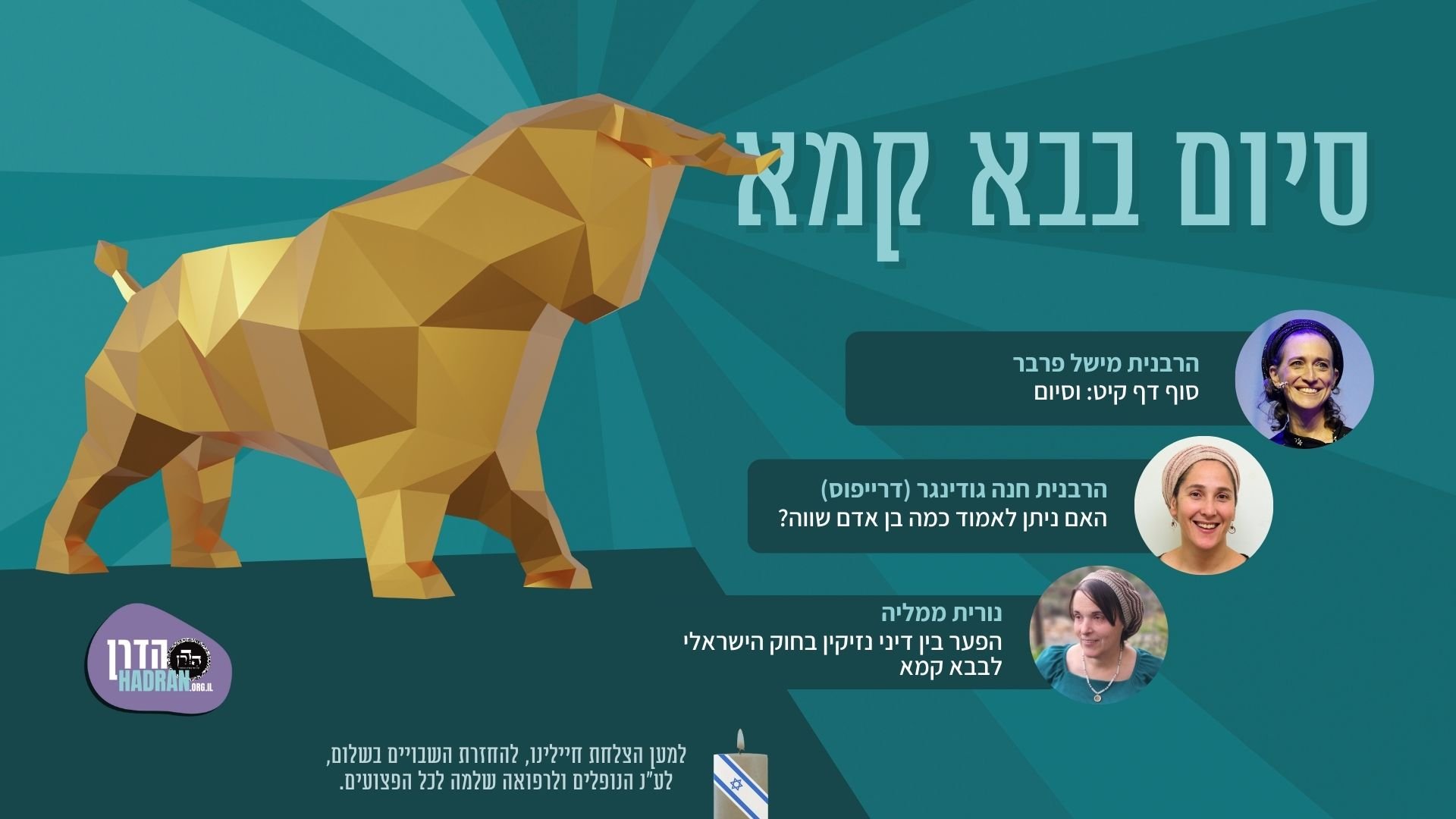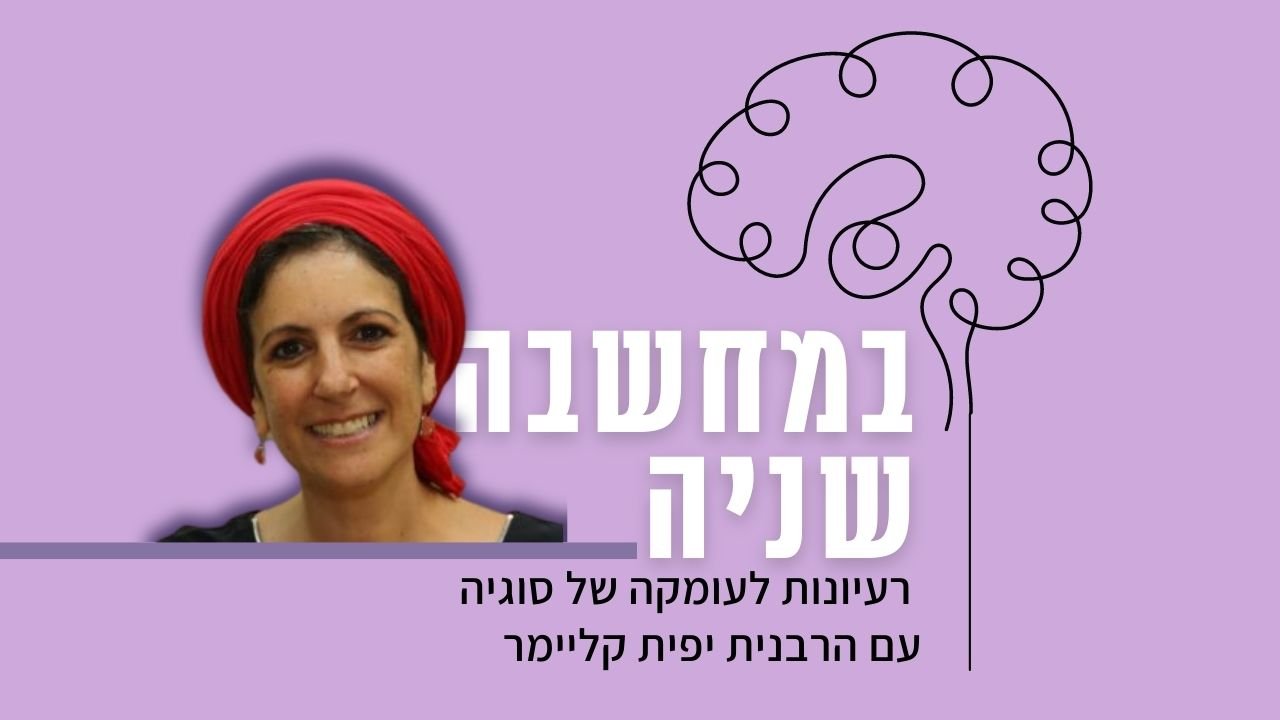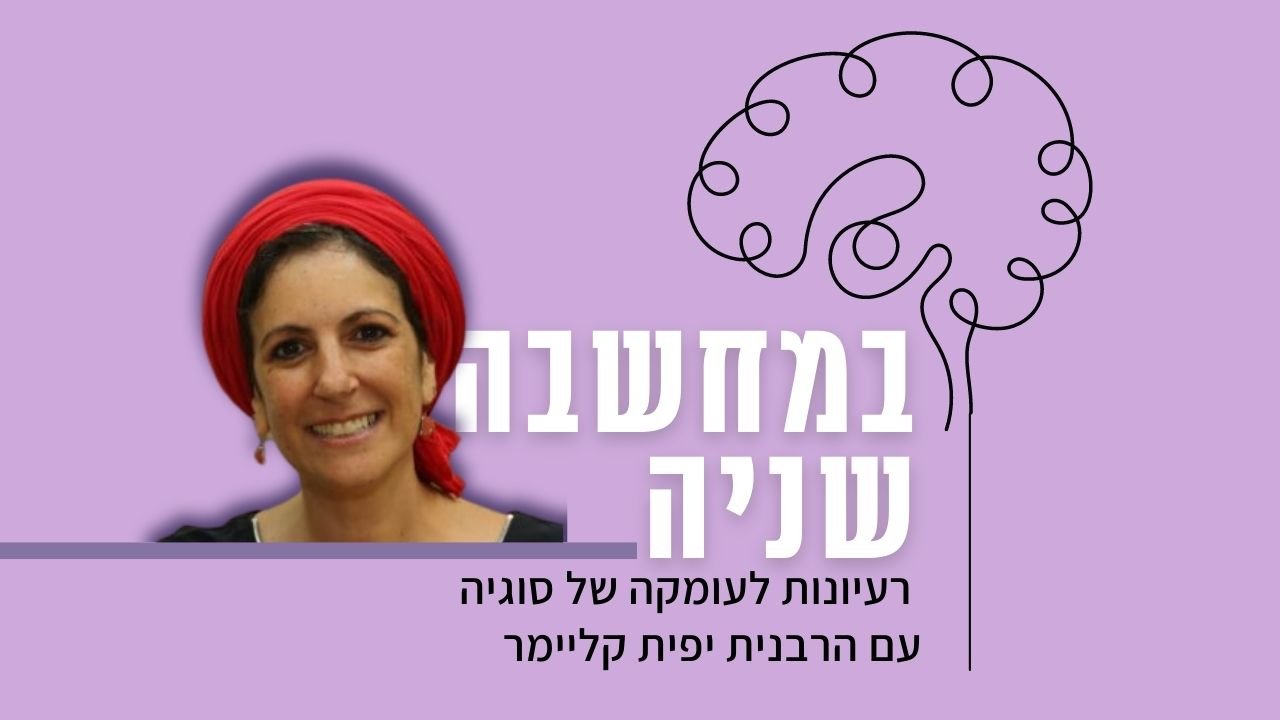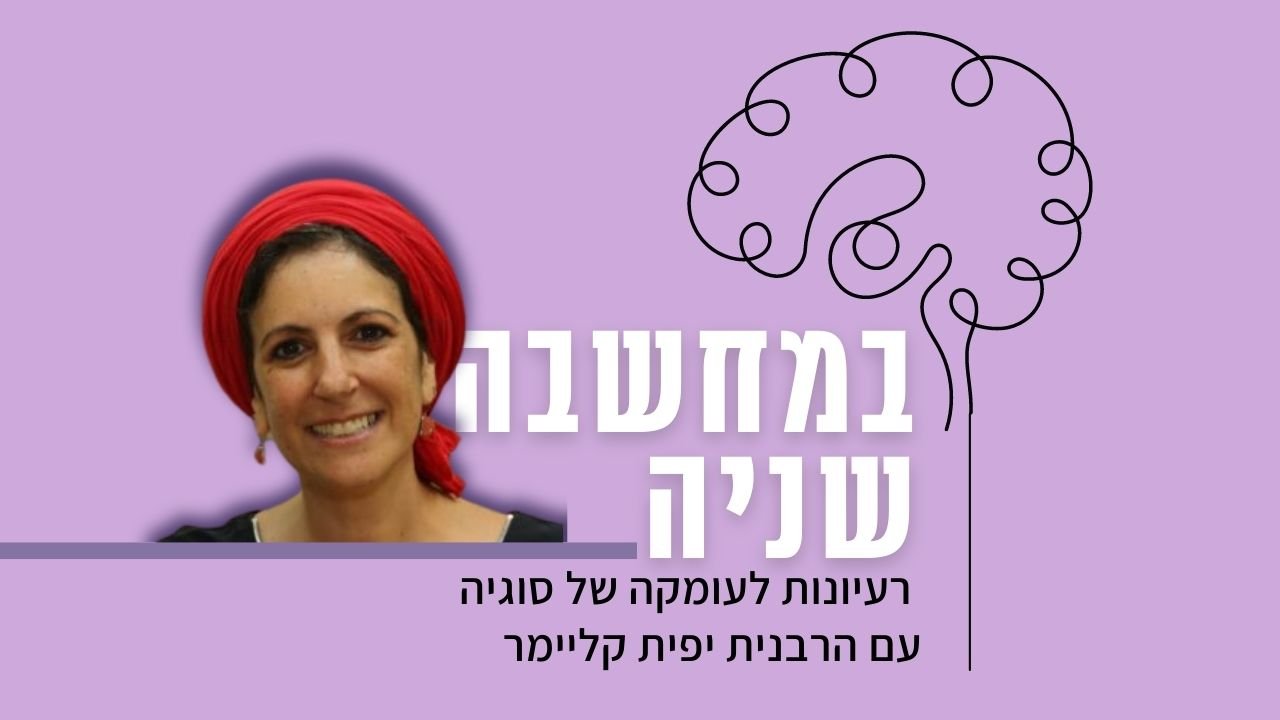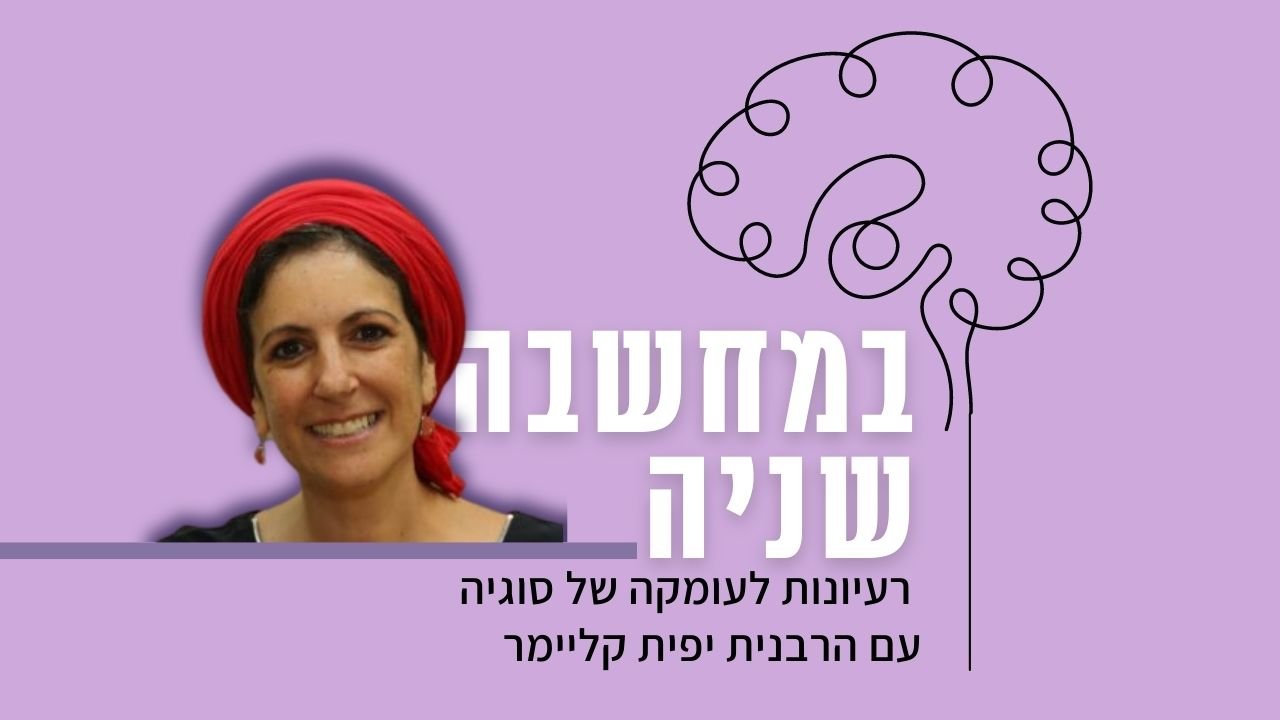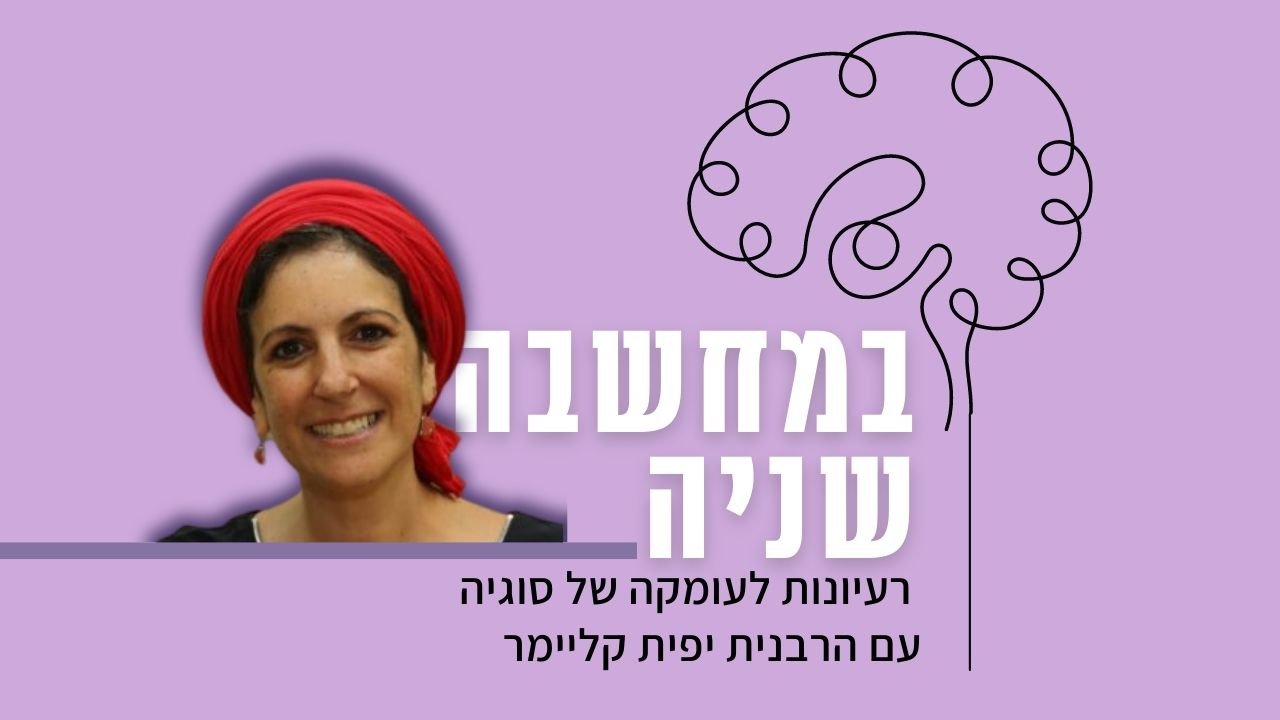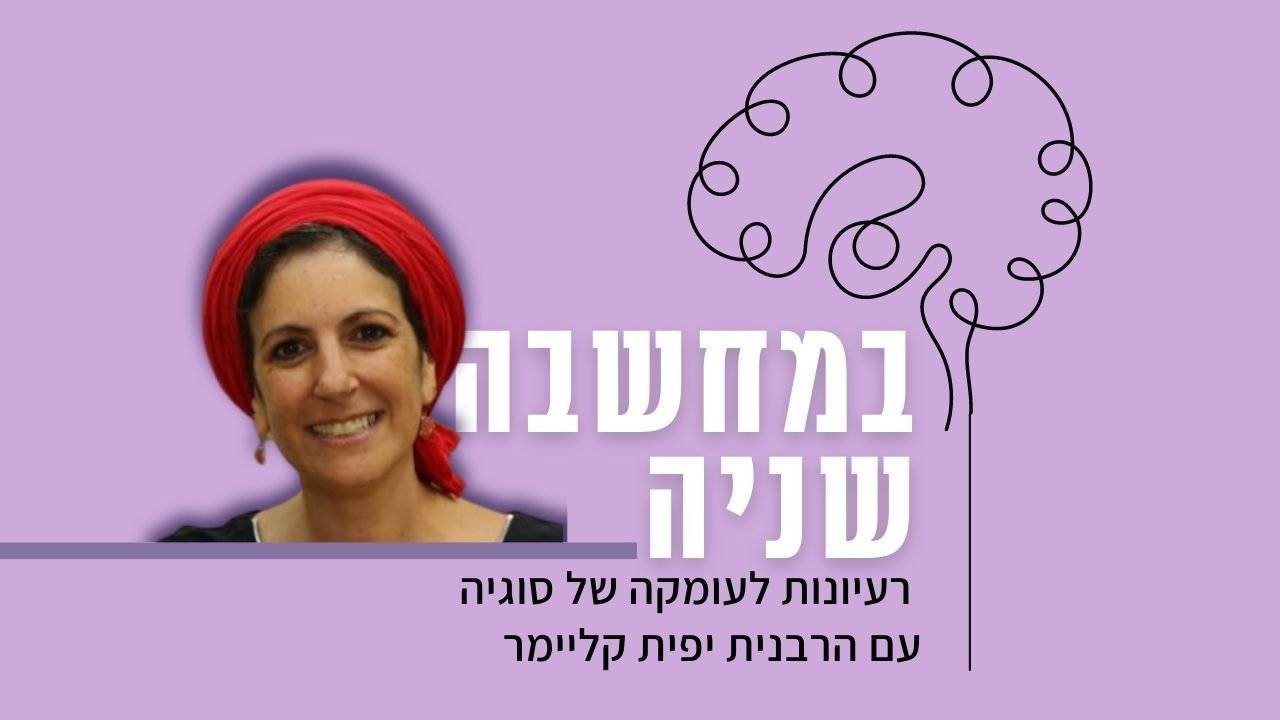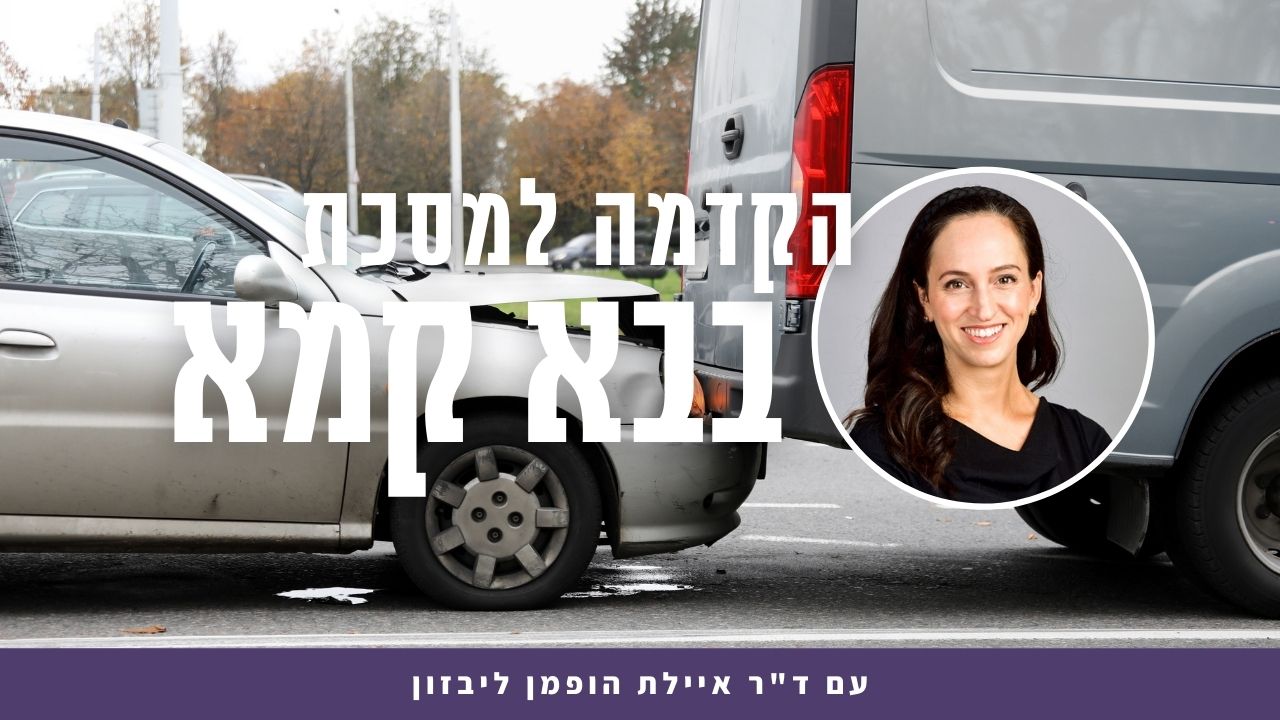בבא קמא קט
בְּחַיָּיו וּבְמוֹתוֹ, אִם מֵת – לֹא יִירָשֶׁנּוּ, וְיַחְזִיר לְבָנָיו אוֹ לְאֶחָיו. וְאִם אֵין לוֹ – לֹוֶה וּבַעֲלֵי חוֹב בָּאִים וְנִפְרָעִים.
The mishna continues: If the father stated in his vow that his son may not derive benefit from his property in his life and in his death, then even if the father then dies the son does not inherit from him, as the prohibition is still in effect. And instead of taking his inheritance, he returns his portion in the estate to his sons or to his brothers. And if he does not have sufficient funds to subsist without his inheritance, he borrows money in the amount of the value of his share in the inheritance and the creditors come and are repaid from his share.
גְּמָ׳ אָמַר רַב יוֹסֵף: אֲפִילּוּ לְאַרְנָקִי שֶׁל צְדָקָה. אָמַר רַב פָּפָּא: וְצָרִיךְ שֶׁיֹּאמַר: ״זֶה גֶּזֶל אָבִי״.
GEMARA: With regard to the halakha written in the mishna that one who robs his father pays the principal and the additional one-fifth payment to the father’s heirs, Rav Yosef says: One may even put this money in a charity purse if he so chooses. Rav Pappa says: And when giving the money he must say: This is what was robbed from my father.
אַמַּאי? נִמְחֲלֵיהּ לְנַפְשֵׁיהּ! מִי לָא תְּנַן: מָחַל לוֹ עַל הַקֶּרֶן וְלֹא מָחַל לוֹ עַל הַחוֹמֶשׁ? אַלְמָא בַּר מְחִילָה הוּא!
§ The Gemara questions the mishna’s ruling that one who robs his father must return the stolen item to others even if he is the sole heir. Why must he do this? Let him forgive the debt to himself; as the heir, to whom payment is due, he should be able to forgive it. Didn’t we learn in a mishna (103a) that in the case of a robber who took a false oath claiming to be innocent and later admitted his liability: If the owner forgave him concerning the principal, but did not forgive him concerning the additional one-fifth payment, he need not pursue him to repay the remaining debt. Apparently, even the principal is subject to forgiveness, so why doesn’t he forgive the obligation to himself?
אָמַר רַבִּי יוֹחָנָן: לָא קַשְׁיָא; הָא רַבִּי יוֹסֵי הַגְּלִילִי, הָא רַבִּי עֲקִיבָא.
Rabbi Yoḥanan said: This is not difficult. That mishna is in accordance with the opinion of Rabbi Yosei HaGelili, who says that this obligation can be forgiven, while this mishna, ruling that a son who robbed his father and is his sole heir cannot forgive the obligation to himself, is in accordance with the opinion of Rabbi Akiva, who holds that this obligation cannot be forgiven.
דְּתַנְיָא: ״וְאִם אֵין לָאִישׁ גֹּאֵל לְהָשִׁיב הָאָשָׁם״ – וְכִי יֵשׁ אָדָם בְּיִשְׂרָאֵל שֶׁאֵין לוֹ גּוֹאֲלִים? אֶלָּא בְּגֶזֶל הַגֵּר הַכָּתוּב מְדַבֵּר –
Rabbi Yoḥanan explains: As it is taught in a baraita (Tosefta 10:16) that the verse states with regard to one who steals from one who then died: “But if the man has no kinsman to whom restitution may be made for the guilt, the restitution for guilt that is made shall be the Lord’s, even the priest’s” (Numbers 5:8). The baraita asks: But is there any Jewish person who has no kinsmen? Since every Jew descends from Jacob our forefather, all Jews have relatives to inherit from them. Rather, it must be that the verse is speaking of robbery of a convert who never married or had children as a Jew, and in any case is no longer legally related to his gentile family; he has no heirs. In this situation the Torah instructs one who robbed from a now-deceased convert to return the stolen item to a priest.
הֲרֵי שֶׁגָּזַל הַגֵּר, וְנִשְׁבַּע לוֹ; וְשָׁמַע שֶׁמֵּת הַגֵּר, וְהָיָה מַעֲלֶה כַּסְפּוֹ וַאֲשָׁמוֹ לִירוּשָׁלַיִם; וּפָגַע בְּאוֹתוֹ הַגֵּר, וּזְקָפוֹ עָלָיו בְּמִלְוָה, וּמֵת – זָכָה הַלָּה בְּמַה שֶּׁבְּיָדוֹ, דִּבְרֵי רַבִּי יוֹסֵי הַגְּלִילִי. רַבִּי עֲקִיבָא אוֹמֵר: אֵין לוֹ תַּקָּנָה עַד שֶׁיּוֹצִיא גְּזֵילוֹ מִתַּחַת יָדוֹ.
The baraita continues: In the case of one who robbed a convert and took a false oath to him saying that he did not rob him, and then heard that the convert died; and he was bringing his money, for the principal and the additional one-fifth payment, and his guilt-offering up to Jerusalem to pay his debt to the priests and sacrifice his offering, and he encountered that same convert, who in fact had not died; and, instead of having the robber pay the money right away the convert established it as a loan for the robber, and then the convert died, leaving his property ownerless, as he had no heirs; this robber acquires all that is in his possession, as it is now a loan, not money to pay back the theft; this is the statement of Rabbi Yosei HaGelili. Rabbi Akiva says: The robber has no remedy until he will remove his stolen item from his possession.
לְרַבִּי יוֹסֵי הַגְּלִילִי – לָא שְׁנָא לְנַפְשֵׁיהּ לָא שְׁנָא לַאֲחֵרִים, מָצֵי מָחֵיל; וּלְרַבִּי עֲקִיבָא – לָא שְׁנָא לַאֲחֵרִים וְלָא שְׁנָא לְנַפְשֵׁיהּ, לָא מָצֵי מָחֵיל.
Rabbi Yoḥanan explains their respective opinions. According to the opinion of Rabbi Yosei HaGelili, there is no difference if the one to whom payment is due forgives the return of a stolen item to himself, such as in this case of a convert who died or in the case of the mishna where a son robbed his father who then died, and there is no difference if he forgives the return of a stolen item to others. In either case, he can forgive payment. And according to the opinion of Rabbi Akiva, there is no difference if the one to whom payment is due forgives the return of a stolen item to others and there is no difference if he forgives the return of a stolen item to himself. In either case, he cannot forgive payment.
וּלְרַבִּי יוֹסֵי – הוּא הַדִּין דַּאֲפִילּוּ לֹא זְקָפוֹ בְּמִלְוָה, וְהַאי דְּקָתָנֵי ״זְקָפוֹ עָלָיו בְּמִלְוָה״ – לְהוֹדִיעֲךָ כֹּחוֹ דְּרַבִּי עֲקִיבָא, דַּאֲפִילּוּ זְקָפָן עָלָיו בְּמִלְוָה, אֵין לוֹ תַּקָּנָה עַד שֶׁיּוֹצִיא גְּזֵילָה מִתַּחַת יָדוֹ.
Rabbi Yoḥanan continues his analysis: And according to the opinion of Rabbi Yosei HaGelili, the same is true, i.e., the halakha would also be, that no liability would remain in the case of the convert even had he not established the robbery debt as a loan, as the robber could forgive the obligation to himself once the convert died. And the fact that the baraita teaches its halakha in a case where he established it as a loan for the robber is to convey to you the far-reaching nature of the opinion of Rabbi Akiva: That even if he established it as a loan for him, in which case it could be considered as though the robber had returned the stolen item and now has a standard loan debt, nevertheless, the robber has no remedy until he will remove his stolen item from his possession, so as to not benefit from his act of robbery.
מַתְקֵיף לַהּ רַב שֵׁשֶׁת: אִי הָכִי, לְרַבִּי יוֹסֵי הַגְּלִילִי – לַשְׁמְעִינַן לְנַפְשֵׁיהּ, וְכׇל שֶׁכֵּן לַאֲחֵרִים! לְרַבִּי עֲקִיבָא – לַשְׁמְעִינַן לַאֲחֵרִים דְּלָא מָצֵי מָחֵיל, וְכׇל שֶׁכֵּן לְנַפְשֵׁיהּ דְּלָא מָצֵי מָחֵיל!
Rav Sheshet objects to this interpretation of the baraita: If so, then according to the opinion of Rabbi Yosei HaGelili, let the mishna on 103a, which indicates that one can forgive the principal payment of a robbery, teach us instead that the robbery victim can forgive the obligation to himself, and it would be understood that all the more so one can forgive the obligation to others. And according to the opinion of Rabbi Akiva, which Rabbi Yoḥanan explains to be the opinion stated in the mishna here, let it teach us that one cannot forgive the obligation to others, and it would be understood all the more so with regard to the robber, that he cannot forgive the obligation to himself.
אֶלָּא אָמַר רַב שֵׁשֶׁת: הָא וְהָא רַבִּי יוֹסֵי הַגְּלִילִי; כִּי קָאָמַר רַבִּי יוֹסֵי הַגְּלִילִי דְּמָצֵי מָחֵיל – לַאֲחֵרִים, אֲבָל לְנַפְשֵׁיהּ – לָא מָצֵי מָחֵיל. אֶלָּא אַמַּאי זָכָה הַלָּה בְּמַה שֶּׁבְּיָדוֹ? מִשּׁוּם דִּזְקָפָן עָלָיו בְּמִלְוָה.
Rather, Rav Sheshet said: That mishna and this mishna are both in accordance with the opinion of Rabbi Yosei HaGelili. When Rabbi Yosei HaGelili is saying that one can forgive the return of a stolen item, he meant specifically forgiving the obligation to others, but he cannot forgive the obligation to himself. The Gemara asks: But if that is the halakha, why did this one who robbed a convert who subsequently died acquire all that is in his possession? Because the convert established it as a loan for him, and henceforth it is no longer considered stolen property, but a standard loan debt.
רָבָא אָמַר: הָא וְהָא רַבִּי עֲקִיבָא; כִּי אָמַר רַבִּי עֲקִיבָא דְּלָא מָצֵי מָחֵיל – לְנַפְשֵׁיהּ, אֲבָל לַאֲחֵרִים – מָצֵי מָחֵיל.
The Gemara offers a different explanation. Rava said: That mishna and this mishna are both in accordance with the opinion of Rabbi Akiva. When Rabbi Akiva says that he cannot forgive the return of a stolen item he meant specifically forgiving the obligation to himself, as in the case of the convert, but he can forgive the obligation to others.
מִכְּלָל דְּרַבִּי יוֹסֵי הַגְּלִילִי סָבַר: אֲפִילּוּ לְנַפְשֵׁיהּ נָמֵי מָצֵי מָחֵיל?! אֶלָּא גֶּזֶל הַגֵּר דְּקָאָמַר רַחֲמָנָא נְתִינָה לְכֹהֲנִים, הֵיכִי מַשְׁכַּחַתְּ לַהּ?
The Gemara questions Rava’s explanation: By inference does it follow that Rabbi Yosei HaGelili holds that he can forgive the return of the stolen item even to himself? But if so, payment for robbery of a convert who dies without heirs, about which the Merciful One says that it requires giving repayment to the priests, how can you find these circumstances if in every case where one robs a convert and the convert dies the robber can forgive the return of the item to himself?
אָמַר רָבָא: הָכָא בְּמַאי עָסְקִינַן – כְּשֶׁגָּזַל אֶת הַגֵּר, וְנִשְׁבַּע לוֹ, וּמֵת הַגֵּר, וְהוֹדָה לְאַחַר מִיתָה; דִּבְעִידָּנָא דְּאוֹדִי – קְנָאוֹ הַשֵּׁם וּנְתָנוֹ לְכֹהֲנִים.
Rava said: With what are we dealing here? With a case where one robbed the convert and took an oath to him that he did not rob him, and then the convert died, and the robber admitted his false oath after the convert’s death, such that at the time that he admitted to it, the Name, i.e., God, acquired the principal and the additional one-fifth payment and gave it to the priests. Once the right to the payment is transferred to the priests the robber can no longer forgive it. By contrast, if he admitted his false oath while the convert was still alive and then the convert dies, the convert can forgive the obligation to himself, since he already took ownership of it.
בָּעֵי רָבִינָא: גֶּזֶל הַגִּיּוֹרֶת, מַהוּ? ״אִישׁ״ אָמַר רַחֲמָנָא – וְלֹא אִשָּׁה, אוֹ דִלְמָא אוֹרְחֵיהּ דִּקְרָא הוּא?
§ Ravina raises a dilemma: With regard to payment for robbery of a female convert, what is the halakha? The Merciful One states in the Torah: “But if the man has no kinsman” (Numbers 5:8), indicating that the halakha applies to a male convert, but not to a woman, i.e., a female convert; if she dies after being robbed, payment is not given to the priests. Or perhaps it is the manner of the verse to employ masculine wording, but the halakha applies in the case of a female convert as well?
אֲמַר לֵיהּ רַב אַהֲרֹן לְרָבִינָא: תָּא שְׁמַע, דְּתַנְיָא: ״אִישׁ״ – אֵין לִי אֶלָּא אִישׁ; אִשָּׁה מִנַּיִן? כְּשֶׁהוּא אוֹמֵר ״הַמּוּשָׁב״ – הֲרֵי כָּאן שְׁנַיִם,
Rav Aharon said to Ravina: Come and hear a solution to your dilemma, as it is taught in a baraita that the verse states in its entirety: “But if the man has no kinsman to whom restitution may be made for the guilt, the restitution for guilt that is made shall be the Lord’s, even the priest’s; besides the ram of the atonement, whereby atonement shall be made for him.” I have derived only that it is referring to a man; from where is it derived that this applies equally to a woman? When it states: “The restitution for guilt that is made,” there are two instances of the phrase “that is made” here, as the verse mentions making restitution twice, to include a female convert in this halakha.
אִם כֵּן מָה תַּלְמוּד לוֹמַר ״אִישׁ״? אִישׁ אַתָּה צָרִיךְ לַחֲזוֹר אַחֲרָיו אִם יֵשׁ לוֹ גּוֹאֲלִים אִם לָאו, קָטָן אִי אַתָּה צָרִיךְ לַחֲזוֹר אַחֲרָיו; בְּיָדוּעַ שֶׁאֵין לוֹ גּוֹאֲלִין.
The baraita continues: If so, what is the meaning when the verse states specifically “man”? The baraita explains: To pay a convert who is a man, you need to investigate concerning him to determine if he has a kinsman or not, but to pay a convert who is a minor you do not need to investigate concerning him. It is known that he has no kinsman, since as a convert he has no kin among his birth family, and as a minor he does not have children.
תָּנוּ רַבָּנַן: ״לַה׳ לַכֹּהֵן״ – קְנָאוֹ הַשֵּׁם, וּנְתָנוֹ לַכֹּהֵן שֶׁבְּאוֹתוֹ מִשְׁמָר. אַתָּה אוֹמֵר לַכֹּהֵן שֶׁבְּאוֹתוֹ מִשְׁמָר; אוֹ אֵינוֹ אֶלָּא לְכׇל כֹּהֵן שֶׁיִּרְצֶה? כְּשֶׁהוּא אוֹמֵר ״מִלְּבַד אֵיל הַכִּפֻּרִים אֲשֶׁר יְכַפֶּר בּוֹ עָלָיו״ – הֲרֵי לַכֹּהֵן שֶׁבְּאוֹתוֹ מִשְׁמָר הַכָּתוּב מְדַבֵּר.
§ With regard to the payment to priests in the case of one who robbed a convert who then died without heirs, the Sages taught: The verse states: “Restitution for guilt that is made shall be the Lord’s, even the priest’s” (Numbers 5:8), teaching that the Name, i.e., God, acquired it and gave it to the priest who is in that priestly watch. Do you say that it is given only to the priest who is on that priestly watch? Or perhaps that is not the case, and rather he may give it to any priest that he wishes? When it says in that verse: “Besides the ram of the atonement, whereby atonement shall be made for him,” this teaches that the verse speaks of giving it to the priest who is on that priestly watch. Just as the ram that the robber brings is given only to the priest on duty who sacrifices it, so too, the money is also given only to the priest on duty.
תָּנוּ רַבָּנַן: הֲרֵי שֶׁהָיָה גּוֹזֵל כֹּהֵן, מִנַּיִן שֶׁלֹּא יֹאמַר: הוֹאִיל וְיוֹצֵא לַכֹּהֲנִים, וַהֲרֵי הוּא תַּחַת יָדִי – יְהֵא שֶׁלִּי? וְדִין הוּא – אִי בְּשֶׁל אֲחֵרִים הוּא זוֹכֶה, בְּשֶׁל עַצְמוֹ לֹא כׇּל שֶׁכֵּן?
Concerning this payment, the Sages taught: In a case where the one who robs the convert was a priest, from where is it derived that he shall not say: Since the payment usually is removed from the robber and given to the priests and it is now in my possession, it should be mine. And there is a logical derivation to support this reasoning, as follows: If a priest has the right to acquire the payment belonging to others who stole from a convert, then with regard to payment belonging to himself, which is already in his possession, is it not all the more so that he should keep it?
רַבִּי נָתָן אוֹמֵר בְּלָשׁוֹן אַחֵר: וּמָה דָּבָר שֶׁאֵין לוֹ חֵלֶק בּוֹ עַד שֶׁיִּכָּנֵס בִּרְשׁוּתוֹ – כְּשֶׁיִּכָּנֵס לִרְשׁוּתוֹ אֵינוֹ יָכוֹל לְהוֹצִיאוֹ מִיָּדוֹ; דָּבָר שֶׁיֵּשׁ לוֹ חֵלֶק בּוֹ עַד שֶׁלֹּא יִכָּנֵס בִּרְשׁוּתוֹ – מִשֶּׁנִּכְנַס לִרְשׁוּתוֹ אֵינוֹ דִּין דְּאֵין אַחֵר יָכוֹל לְהוֹצִיאוֹ מִיָּדוֹ?
The baraita continues: Rabbi Natan states this logical inference with different wording: And just as with regard to a matter in which a priest has no portion until it enters his possession, e.g., teruma, which can be given to any priest, once it enters his possession another priest cannot remove it from his possession; so too, with regard to a matter in which a priest has a portion even before it enters his possession, e.g., an item stolen from a convert, in which he has a portion as one of the priests on the priestly watch, isn’t it logical that another priest cannot remove it from his possession once it is in his possession?
לֹא; אִם אָמַרְתָּ בְּדָבָר שֶׁאֵין לוֹ חֵלֶק בּוֹ – שֶׁכְּשֵׁם שֶׁאֵין לוֹ חֵלֶק בּוֹ כָּךְ אֵין לַאֲחֵרִים חֵלֶק בּוֹ, תֹּאמַר בְּגָזֵל – שֶׁכְּשֵׁם שֶׁיֵּשׁ לוֹ חֵלֶק בּוֹ, כָּךְ יֵשׁ לַאֲחֵרִים חֵלֶק בּוֹ?! אֶלָּא גְּזֵילוֹ יוֹצֵא מִתַּחַת יָדוֹ, וּמִתְחַלֵּק לְכׇל אֶחָיו הַכֹּהֲנִים.
The baraita continues, countering that this logical inference is not correct: No, if you said this concerning a matter in which a priest has no portion, where the reason why once it enters his possession another priest cannot remove it from his possession is that just as he has no portion in it, so too, others have no portion in it; would you say the same concerning an item robbed from a convert? As there it could be said that just as the priest who robbed him has a portion in it as one of the priests on the priestly watch, so too, other priests on that watch have a portion in it. Rather, the halakha is that the item he stole is removed from his possession and is distributed to all of his brethren, the priests.
וְהָכְתִיב: ״וְאִישׁ אֶת קֳדָשָׁיו לוֹ יִהְיוּ״! הָכָא בְּמַאי עָסְקִינַן – בְּכֹהֵן טָמֵא.
The Gemara raises an objection: But isn’t it written: “And every man’s hallowed things shall be his; whatsoever any man gives to the priest, it shall be his” (Numbers 5:10), indicating that a priest is not required to give to the other priests the offerings he sacrifices? Therefore, just as he has the right to the flesh of the guilt-offering that he brings to atone for robbing the convert, shouldn’t he also have the right to the payment? The Gemara answers: With what are we dealing here, in this case? We are dealing with a ritually impure priest, who is unfit to sacrifice the guilt-offering and therefore does not have rights to the flesh of the offering. In this case, he will not be able to keep the payment for himself.
אִי בְּכֹהֵן טָמֵא, ״דָּבָר שֶׁיֵּשׁ לוֹ חֵלֶק בּוֹ״ מִי אִית לֵיהּ?! אֶלָּא אָתְיָא ״לַכֹּהֵן״–״לַכֹּהֵן״ מִשְּׂדֵה אֲחוּזָּה.
The Gemara asks: If the baraita states its ruling specifically with regard to an impure priest, how can it describe the payment as a matter in which the priest has a portion? Does he have a portion in it? Therefore, the baraita must not be referring to an impure priest. Rather, there is another reason why he has no right to the payment. This halakha is derived through a verbal analogy between the phrase “even the priest’s [lakohen]” (Numbers 5:8) written in this context, and the phrase “to the priest [lakohen]” (Leviticus 27:21) from the verse stated concerning an ancestral field, which, if consecrated and then redeemed by another does not revert to its original owner in the Jubilee Year, but is given to the priests, as the baraita will now explain.
דְּתַנְיָא: ״אֲחֻזָּתוֹ״ – מָה תַּלְמוּד לוֹמַר? מִנַּיִן לְשָׂדֶה הַיּוֹצְאָה לַכֹּהֲנִים בַּיּוֹבֵל – וּגְאָלָהּ אֶחָד מִן הַכֹּהֲנִים, מִנַּיִן שֶׁלֹּא יֹאמַר: הוֹאִיל וְיוֹצְאָה לַכֹּהֲנִים בַּיּוֹבֵל, וַהֲרֵי הִיא תַּחַת יָדִי, תְּהֵא שֶׁלִּי?
As it is taught in a baraita that the verse states: “But the field, when it goes out in the Jubilee, shall be holy unto the Lord, as a field dedicated; the possession thereof shall be to the priest” (Leviticus 27:21). The baraita asks: What is the meaning when the verse states the term: “The possession thereof”? From where is it derived that with regard to a field that goes out to the priests in the Jubilee Year and one of the priests redeemed it before the Jubilee Year, from where is it derived that a priest shall not say: Since a field that is redeemed by another goes out to the priests in the Jubilee Year, and the field that I redeemed is now in my possession, it should be mine, and not be given to the priests in general?
וְדִין הוּא – בְּשֶׁל אֲחֵרִים אֲנִי זוֹכֶה, בְּשֶׁל עַצְמִי לֹא כׇּל שֶׁכֵּן?!
The baraita continues: And there is a logical derivation to support this reasoning, as follows: If I acquire the field belonging to others, who consecrated it and it was then redeemed, then with regard to a field belonging to me, which is already in my possession, is it not all the more so that I should keep it?
תַּלְמוּד לוֹמַר: ״כִּשְׂדֵה הַחֵרֶם לַכֹּהֵן תִּהְיֶה אֲחֻזָּתוֹ״ – אֲחוּזָּה שֶׁלּוֹ, וְאֵין זוֹ שֶׁלּוֹ. הָא כֵּיצַד? יוֹצְאָה מִתַּחַת יָדוֹ, וּמִתְחַלֶּקֶת לְכׇל אֶחָיו הַכֹּהֲנִים.
The baraita continues, countering that this logical inference is not correct. The verse states: “As a field dedicated; the possession thereof shall be to the priest” (Leviticus 27:21), indicating that a field of which the priest has possession from his ancestors is his, but this field that he redeemed is not his. How so? It is removed from his possession and is distributed to all of his brethren, the priests.
תָּנוּ רַבָּנַן: מִנַּיִן לְכֹהֵן – שֶׁבָּא וּמַקְרִיב קׇרְבְּנוֹתָיו בְּכׇל עֵת וּבְכׇל שָׁעָה שֶׁיִּרְצֶה? תַּלְמוּד לוֹמַר: ״וּבָא בְּכׇל אַוַּת נַפְשׁוֹ״, ״וְשֵׁרֵת״.
§ The Gemara records another baraita concerning the rights of a priest to offerings he sacrifices. The Sages taught (Tosefta, Menaḥot 13:17): From where is it derived that a priest may come and sacrifice his offerings at any time and at any hour that he wishes and does not have to wait for his priestly watch to serve in the Temple? The verse states: “And if a Levite comes from any of your gates out of all Israel, where he sojourns, and comes with all the desire of his soul unto the place that the Lord shall choose; then he shall minister in the name of the Lord his God” (Deuteronomy 18:6–7).
וּמִנַּיִין שֶׁעֲבוֹדָתָהּ וְעוֹרָהּ שֶׁלּוֹ? תַּלְמוּד לוֹמַר: ״וְאִישׁ אֶת קֳדָשָׁיו לוֹ יִהְיוּ״. הָא כֵּיצַד? אִם הָיָה בַּעַל מוּם – נוֹתְנָהּ לְכֹהֵן שֶׁבְּאוֹתוֹ מִשְׁמָר, וַעֲבוֹדָתָהּ וְעוֹרָהּ שֶׁלּוֹ.
The baraita continues: And from where is it derived that the performance of the offering’s service, i.e., eating the meat of the animal he sacrifices, and the offering’s hide, belong to him? The verse states: “And every man’s hallowed things shall be his” (Numbers 5:10). How so? If this priest was blemished, he gives his offering to another priest that is on the same priestly watch as him to sacrifice it, but the performance of its service and its hide belong to him.

